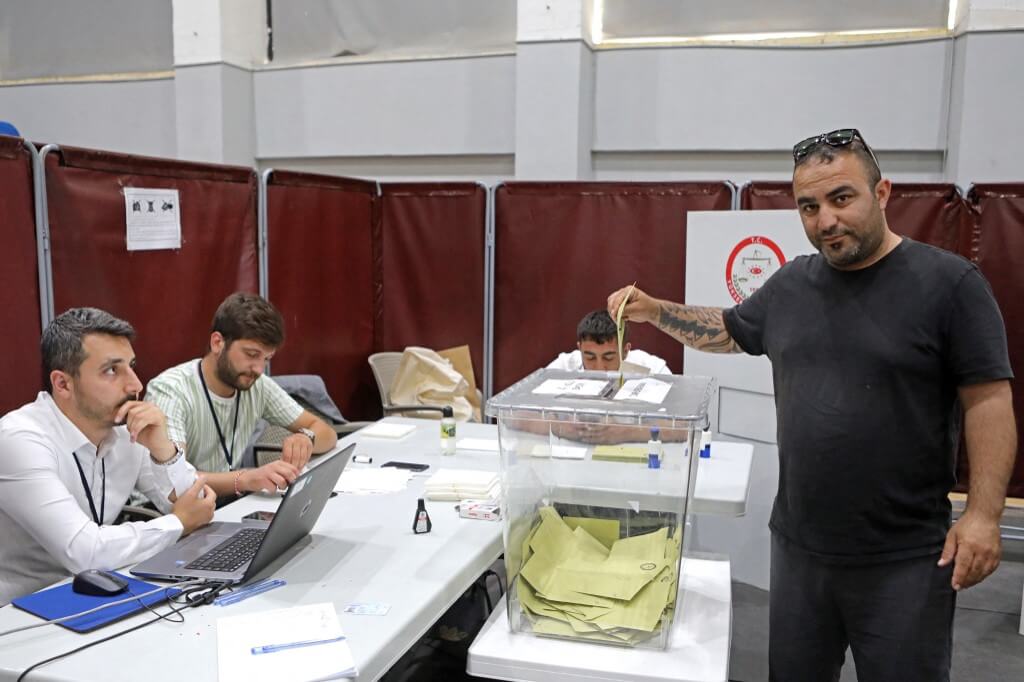Turkish voters will be making decisions that could have a decisive impact on Turkey’s future on Sunday.
Main opposition Republican People’s Party (CHP) leader Özgür Özel called on voters to be vigilant and cautious in a speech in the western city of İzmir on Saturday, warning that tensions could arise on election day.
“Everyone should be careful. I urge everyone to act sensibly,” Özel advised, describing the upcoming election not just as a contest between political parties but as a historic clash between the state and the nation itself.
Over the past 10 years, especially after a failed coup in 2016, elections in Turkey have been characterized by accusations of unfairness, restrictions on freedom of speech and suppression of the opposition. According to critics, the state machinery deployed by the ruling Justice and Development Party (AKP) under President Recep Tayyip Erdoğan goes against the aspirations of the Turkish people for democratic freedoms and fair elections.
Various international rights watchdogs, including Freedom House, highlight the systemic abuse of state resources, the criminal prosecution of political opponents and media manipulation, underscoring the unfair advantages leveraged by the AKP.
“History has shown us that whenever there has been a contest between the state and the nation, the nation has always won. Today it is the state against the nation, the state against the Turkish alliance, and our people will make sure that the nation wins,” Özel said.
The importance of these local elections goes beyond national borders and has attracted the attention of the global media. With scenarios predicting a tough battle for the big cities that the CHP won from the ruling AKP in 2019, such as İstanbul, the stakes could not be higher.
Analysis from international publications such as The Economist, The Washington Post and Foreign Policy show a wide range of expectations, from the potential impact of the Kurdish vote in İstanbul to sway the election in the AKP’s favor to the profound implications these elections could have for Turkey’s democratic fabric and Erdoğan’s political future, as the president said the local elections would be his last.
However, these local elections are not just about political power games, they touch the daily lives of Turkish citizens.
Promises of social assistance have emerged as a central theme, reflecting the pressing economic challenges facing the country. Candidates across the political spectrum have made pledges aimed at alleviating the financial burden on families, the elderly and students, recognizing the crucial role of social support at a time of widespread financial hardship in the nation.
Highlights
An unprecedented number of candidates are running for various positions in Turkey’s local elections.
A total of 12,725 candidates, including 653 independents, are vying for 1,003 municipal seats in the elections, which are being held in 81 provinces, 922 districts, 397 cities and 18,257 villages.
İstanbul, Turkey’s largest city, is leading the race with 49 candidates competing for mayor, including both party-affiliated and independent candidates. Of particular note are Bakırköy and Sultanbeyli, where 25 candidates are running for mayor of each district, setting a record for the highest number of candidates in İstanbul.
The capital Ankara is not far behind, with 24 candidates for mayor. In some districts of Ankara, such as Çankaya, Altındağ and Keçiören, the race is even more fiercely contested, with the number of candidates exceeding the number of mayoral candidates in the city.
The party fielding the most candidates nationwide is the New Welfare Party (YRP), which is running in 845 out of 922 districts.
Due to the large number of candidates, voters in İstanbul will complete the longest ballot, with an impressive length of 97 centimeters. In contrast, the shortest ballot, measuring only 4 centimeters, will be used in Uludere’s Hilal district in Şırnak province, where only one candidate from one party is running, so the result of the election is a foregone conclusion.

